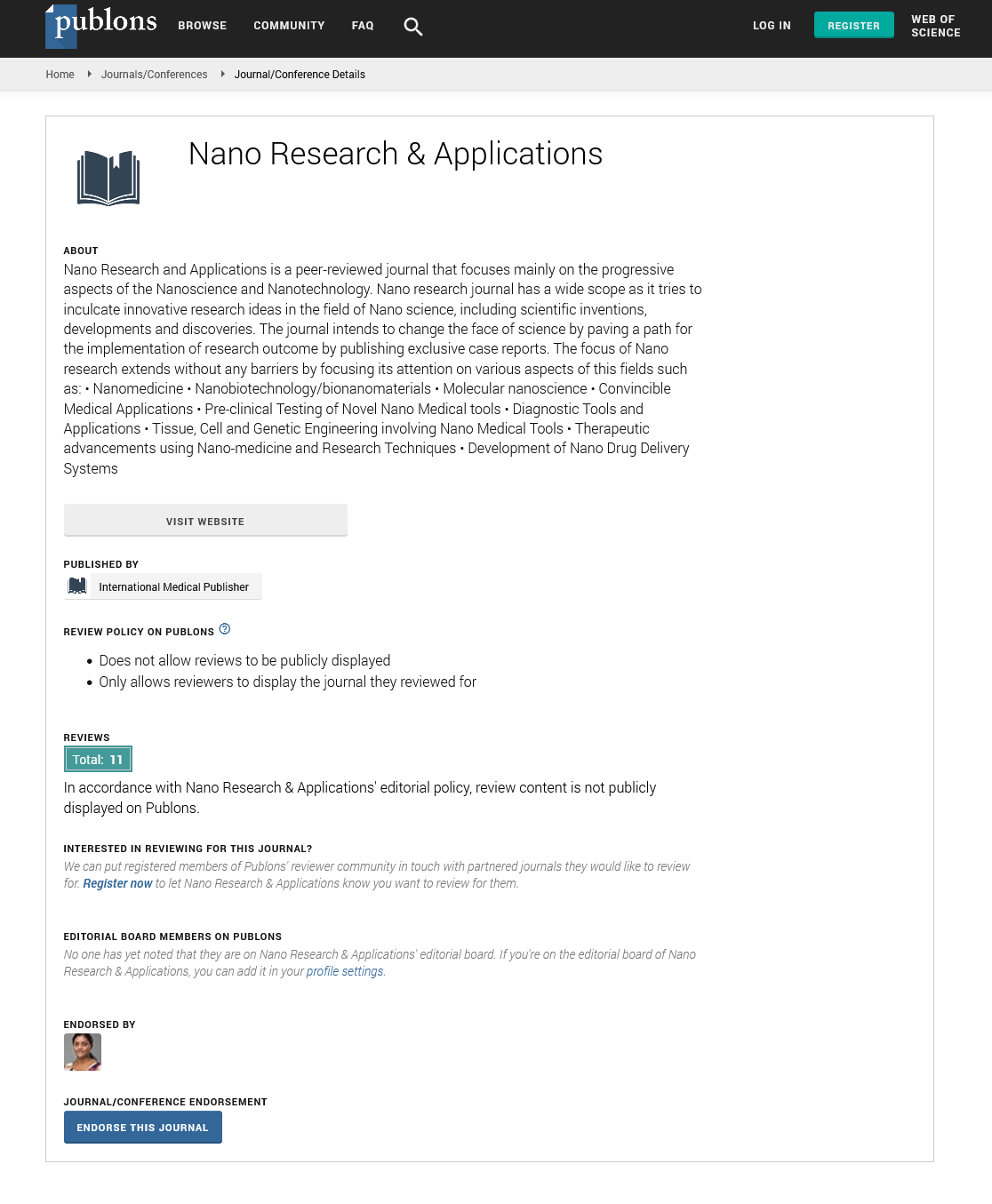ISSN : 2471-9838
Nano Research & Applications
Multifunctional bioinspired nanocarrier based targeted therapy for lung cancer
Joint Event on 25th Nano Congress for Future Advancements & 12th Edition of International Conference on Nanopharmaceutics and Advanced Drug Delivery
August 16-18, 2018 | Dublin, Ireland
Mahavir B Chougule
University of Mississippi, USA
Posters & Accepted Abstracts: Nano Res Appl
DOI: 10.21767/2471-9838-C3-015
Abstract
Statement of the Problem: Despite an increased understanding of pathophysiology and advanced therapies, the success rate in the treatment of lung cancer remains unsatisfactory. Conventional therapies are rarely successful due to limited amount of drug reaching the tumor site even administered at a high dose and associated toxic effects. Therefore, site-specific targeted delivery of therapeutically active agents to the tumor cells is the most crucial step for the effective treatment of lung cancer. The aim is to develop aerosolized Celecoxib loaded lipid nanocarriers (Cxb-NLC) and evaluate in vitro and in-vivo anticancer activity of as a single therapeutic agent and combined with intravenously administered Docetaxel (Doc) against non-small cell lung cancer. Our approach is to deliver the chemodrugs using targeted biodegradable lipidic biomaterial based nanocarriers via inhalation route of administration to tumor cells while sparing normal cells. The high-pressure homogenization was used for nanocarrier preparation and characterized for its physicochemical characteristics. The in vivo A549 tumor model in Nu/ Nu mice was used to evaluate the efficacy. The particle size of Cxb-NLC was 217±20nm, while entrapment efficiency was > 90%. Cxb-NLC and Doc alone and in combination showed 25±4 %, 37±5 %, and 67±4 % reduction in tumor size respectively compared to control. Proteomic analysis with combination treatment further revealed significantly decreased expression of multiple pro-survival and pro-metastasis proteins. Cxb-NLC and Doc combination therapy showed significant reduction in tumor growth which was further confirmed by proteomic analysis. The in vitro, lung cancer orthotopic tumor models studies confirm the enhanced efficacy of developed targeted nanocarriers.
Biography
E-mail:
chougule@olemiss.edu
Google Scholar citation report
Citations : 387
Nano Research & Applications received 387 citations as per Google Scholar report
Nano Research & Applications peer review process verified at publons
Abstracted/Indexed in
- Google Scholar
- China National Knowledge Infrastructure (CNKI)
- Directory of Research Journal Indexing (DRJI)
- WorldCat
- Publons
- Secret Search Engine Labs
- Euro Pub
Open Access Journals
- Aquaculture & Veterinary Science
- Chemistry & Chemical Sciences
- Clinical Sciences
- Engineering
- General Science
- Genetics & Molecular Biology
- Health Care & Nursing
- Immunology & Microbiology
- Materials Science
- Mathematics & Physics
- Medical Sciences
- Neurology & Psychiatry
- Oncology & Cancer Science
- Pharmaceutical Sciences
